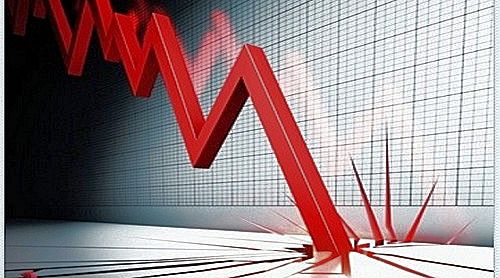Vaccines, peak sales and panic. Doctors besieged by patients
Coletto's participation in the anti-flu campaign drops to 58%: "Ready to block the doses of the suspect brand". "Madness - observes the Venetian president, Giuseppe Cicciù - so we would end up with hundreds of dead, not just thirteen".
01 December 2014 – VENETO COURIER VENETO / CHRONICLE
The same one that in 2012 had seen 500,000 doses blocked by the Italian Medicines Agency (Aifa), some of which had caused annoying side effects, fortunately not serious, for several Venetians. This time none of the 475,000 packs included in the two withdrawn lots has reached our region, which in fact has no records of deaths or suspected cases, but people put two and two together and are afraid all the same.
You read it in the further drop in vaccinations in the Local Health Authorities (for which the "Fluad" is intended) and in the collapse of sales of other serums in pharmacies, although they have nothing to do with the one under investigation in Siena, Prato and Syracuse. «Purchases of flu vaccines have dropped by 50% - confirms Franco Gariboldi Muschietti, president of Farmacieunite - the Fluad case has dealt the final blow to the physiological decline observed in recent years. It is linked to the decision not to protect themselves adopted by a growing number of Venetians and to the choice of many others to resort to homeopathic treatments ». «Only in the province of Verona does an average drop in sales of 27% emerge, with peaks of 70% – adds Marco Bacchini, president of Federfarma from Verona -. The withdrawal of Fluad creates an alarmism that adds up to the need for economic savings and a warm autumn capable of distracting patients from immunising themselves. A dangerous choice: the virus, finding no subjects/barriers, will spread massively ».
The Ministry of Health and the Regions are therefore preparing a counter-campaign, which illustrates the risks associated with the choice not to take the anti-flu serum. Veneto has bought 900,000 doses, including "Fluad", equipped with an adjuvant, that is, more powerful because it is reserved for the over 65s and over 70s with multiple pathologies. We are monitoring the situation, I just heard from Aifa and if on Monday they advise us to block all the Fluad lots we will do it – declares Luca Coletto, councilor for health – but until then we will continue with the vaccination campaign. Engaging in terrorism risks causing victims among those who must protect themselves and give up out of distrust (every year in Italy the flu causes 8,000 deaths, ed). I would also like to remind you that so far we have not encountered any negative results from the administration of the anti-flu ». The fact is that family doctors are receiving hundreds of requests for clarification from their clients. “They bombard us with phone calls, but many also come to the studio to ask us if it is advisable to get vaccinated – reveals Domenico Crisarà, regional deputy secretary of Fimmg, the category acronym – but then trust in one's doctor prevails. In fact I have already injected 200 of the 250 doses received from the Local Health Authority. And anyway we don't use the Fluad». «I was vaccinated first – says Silvio Regis, secretary of Fimmg – and until the Novartis case I had noticed an increase in requests. But now we risk an involution and it's a shame, yes, it's a social alarm ». On the other hand, the Sick Court is concerned about the decision of other regions to block the vaccination campaign. "Madness - observes the Venetian president, Giuseppe Cicciù - so we would end up with hundreds of dead, not just thirteen".
01 December 2014
Vaccine block: attention is growing from Austria and Spain
30 NOVEMBER 2014 – SWI swissinfo.ch
Dopo il blocco di alcuni lotti del vaccino Fluad in Italia da parte dell’Aifa (Agenzia Italiana del farmaco), per un possibile collegamento con alcune morti sospette (tutte fra anziani e già sofferenti di alcune malattie, spesso cardiache) cresce l’attenzione anche negli altri Paesi europei in cui il vaccino prodotto dalla casa farmaceutica Novartis viene distribuito e utilizzato per la campagna vaccinale 2014-2015, come Austria, Germania e Spagna.
“L’Ages austriaco è in stretto contatto con le autorità italiane e continuerà a monitorare la situazione da vicino” spiega la Kleine Zeitung, ricordando che “il vaccino è stato approvato nel 1997 e testato in studi clinici su decine di migliaia di pazienti, dal momento che più di 65 milioni di dosi sono state distribuite in tutto il mondo”. Mentre un altro quotidiano austriaco, il Kurier, tiene a specificare che sebbene l’attenzione sul problema sia in crescita in Austria “i lotti distribuiti nel Paese non sono gli stessi distribuiti in Italia”.
In Germania, dove la notizia viene data, tra gli altri, sui siti “Die Welt”, “Zeit online” e “Deutschland Today”, si sottolinea che “finora, il rapporto tra il vaccino e le morti non è ancora stato dimostrato secondo l’azienda produttrice” e che “i lotti difettosi del vaccino sono stati preparati in uno stabilimento Novartis in Toscana”. E in Spagna, dove la notizia dei decessi sospetti in Italia trova spazio sui siti di diversi media, dal quotidiano “La Vanguardia” al sito del quotidiano cattolico e conservatore “Abc”, si prova a rassicurare i lettori ponendo l’accento in particolare sul fatto che, secondo quanto riferisce l’agenzia di stampa Efe, “le dosi sospette del vaccino non sarebbero distribuite all’estero ma unicamente in Italia”.
